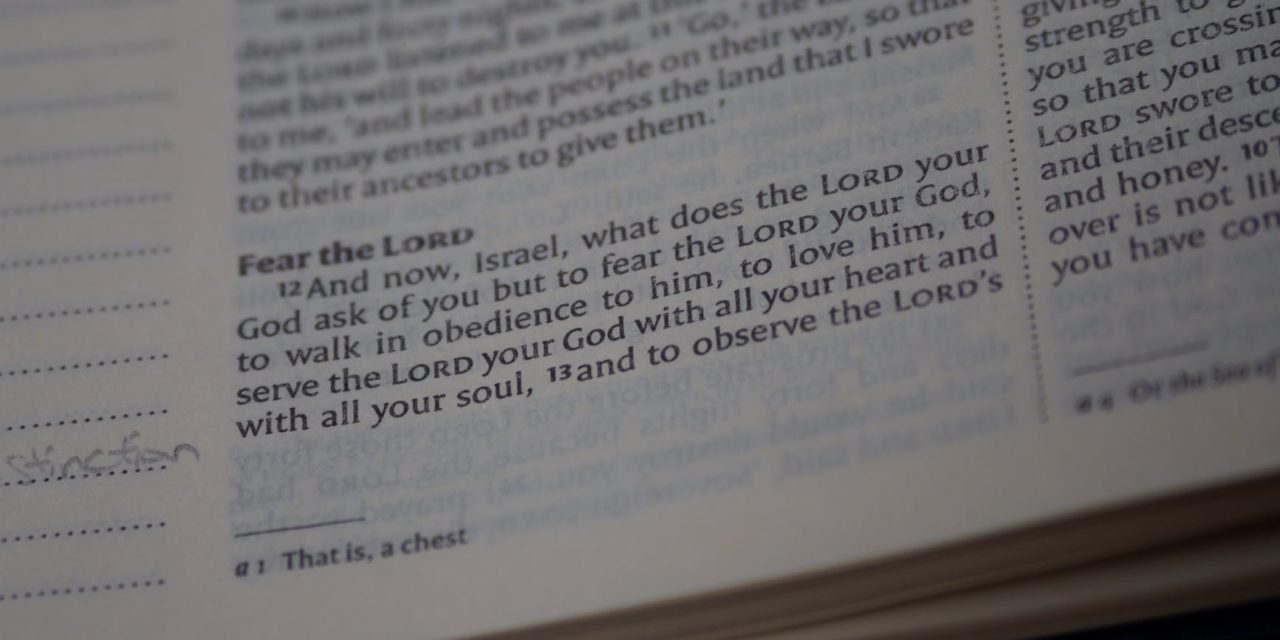Let’s start with the Eleventh Commandant: Thou shall not be so foolish as to question the ethicality of the other ten. It could be a shall—as in, Thou shall be ridiculed by questioning the ethicality of the other ten. With or without my fictional Number Eleven, there are shalts and shaltnots aplenty for much of recorded history. But the Ten, aka the Decalogue, is a staple of morality, immorality, ethics and politics. So, what are the ethics of writing about the Ten Commandments?
Numbering and wording over the ages has differed. Written versions differ in language, meaning, and interpretation. The one consistent element is that they were all written—in stone, parchment, longhand, ink, chalk, Times New Roman, and in judicial opinion formatting by courts.
The biblical narrative of the revelation at Sinai begins in Exodus 19 after the arrival of the children of Israel at Mount Sinai. Wikipedia recounts the origin. “On the morning of the third day of their encampment, there were thunders and lightning, and a thick cloud upon the mount, and the voice of the trumpet exceeding loud, and the people assembled at the base of the mount … Moses went up briefly and returned with stone tablets and prepared the people … then in Exodus 20, ‘God spoke’ to all the people the words of the covenant, that is, the ten commandments as it is written.”[1]
An early written version of the Ten Commandments on paper says:
- I am the Lord your God, who brought you out of the land of Egypt, out of the house of slavery; you shall have no other gods before me. You shall not make for yourself an idol, whether in the form of anything that is in heaven above, or that is on the earth beneath, or that is in the water under the earth.
- You shall not bow down to them or worship them; for I the Lord your God am a jealous God, punishing children for the iniquity of parents, to the third and the fourth generation of those who reject me, but showing steadfast love to the thousandth generation of those who love me and keep my commandments.
- You shall not make wrongful use of the name of the Lord your God, for the Lord will not acquit anyone who misuses his name.
- Remember the Sabbath day, and keep it holy. Six days you shall labor and do all your work. But the seventh day is a Sabbath to the Lord your God; you shall not do any work—you, your son or your daughter, your male or female slave, your livestock, or the alien resident in your towns. For in six days the Lord made heaven and earth, the sea, and all that is in them, but rested the seventh day; therefore the Lord blessed the Sabbath day and consecrated it.
- Honor your father and your mother, so that your days may be long in the land that the Lord your God is giving you.
- You shall not murder.
- You shall not commit adultery.
- You shall not steal.
- You shall not bear false witness against your neighbor.
- You shall not covet your neighbor’s house; you shall not covet your neighbor’s wife, or male or female slave, or ox, or donkey, or anything that belongs to your neighbor. [2]
Later, other written versions were edited when vernacular began to seep into religious tradition.
- You shall have no other Gods but me.
- You shall not make for yourself any idol, nor bow down to it or worship it.
- You shall not misuse the name of the Lord your God.
- You shall remember and keep the Sabbath day holy.
- Respect your father and mother.
- You must not commit murder.
- You must not commit adultery.
- You must not steal.
- You must not give false evidence against your neighbor.
- You must not be envious of your neighbor’s goods. You shall not be envious of his house nor his wife, nor anything that belongs to your neighbor. [3]
In the Twenty-First Century, the language of the Ten Commandments was slenderized by a marketing company.[4]
- Put God First
- Worship Him Only
- No Bad Words
- Work 6—Rest 1
- Obey Your Parents
- Harm No One
- Don’t Cheat
- If It’s Not Yours, Don’t Take It
- Tell The Truth
- Don’t Be Jealous of Other’s Stuff
Ethically, the traditional version survived in all ten commandments. It is just shorter and awesome.
In the secular world, the US Supreme Court has the last word on statutory interpretation, compliance and sustainability of written rules like the Ten Commandments. In 1980, SCOTUS ruled five to four in Stone v. Graham[5] that a Kentucky statute requiring school officials to post a copy of the Ten Commandments (purchased with private contributions) on a wall in every public classroom violated the First Amendment’s establishment clause, which is commonly interpreted as a separation of church and state.
In addition to posting the Ten Commandments, the Kentucky statute, written by its legislature in 1978, required that the Ten Commandments would be placed, in small print, at the bottom of each display: “The secular application of the Ten Commandments is clearly seen in its adoption as the fundamental legal code of Western Civilization and the Common Law of the United States. Opponents of the statute claimed that it violated the establishment and free exercise clauses of the First Amendment … In 1980 the case was argued before the U.S. Supreme Court. In a per curiam written opinion, SCOTUS held that the Kentucky statute violated the First Amendment because the posting of the Ten Commandments was clearly religious and not educational.[6]
The 1980 opinion was good law for the next twenty-five years. In 2005, the Court upheld the display of the Ten Commandments on the Texas capitol grounds in Van Orden v. Perry,[7] but it declared displays of the Ten Commandments in two Kentucky county courthouses unconstitutional in McCreary County v. American Civil Liberties Union.[8] In both cases, the Supreme Court said Stone v. Graham was still valid and that the context of the Ten Commandments in school classrooms required more care to avoid violations of the establishment clause than displays in other public places.
Let’s leave it at that.
[1]https://en.wikipedia.org/wiki/Ten_Commandments
[2] https://www.britannica.com/topic/Ten-Commandments
[3] https://www.topmarks.co.uk/judaism/the-ten-commandments
[4] https://www.etsy.com/listing/160562256/christian-wall-art-ten-commandments?utm_campaign=Share&utm_medium=PageTools&utm_source=Pinterest
[5] 449 U.S. 39 (1980
[6]449 U.S. 39 (1980). https://www.britannica.com/event/Stone-v-Graham
[7] 545 U.S. 677 (2005).
[8] 545 U.S. 844, (2005).






 I am an author and a part-time lawyer with a focus on ethics and professional discipline. I teach creative writing and ethics to law students at Arizona State University.
I am an author and a part-time lawyer with a focus on ethics and professional discipline. I teach creative writing and ethics to law students at Arizona State University.  My latest novel is Hide & Be.
My latest novel is Hide & Be.  If you have an important story you want told, you can commission me to write it for you.
If you have an important story you want told, you can commission me to write it for you.